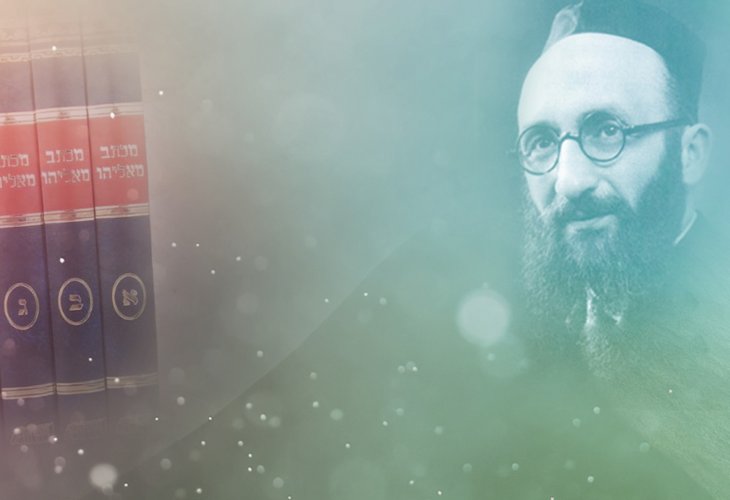Torah Personalities
Rabbi Eliyahu Eliezer Dessler: The Father of the Modern Mussar Movement
A visionary thinker and beloved spiritual guide, Rabbi Dessler shaped the soul of Israeli yeshivot before his sudden passing in 1954

A Legacy of Loss in a Formative Era
On the 25th of Tevet 5714 (December 31, 1953), the Orthodox newspaper Shearim mourned: “One by one, they are taken from us… while our eyes are still wet with tears, yet another loss strikes; another tzaddik (righteous man) departs…”
The grief was palpable. That winter, three towering Torah giants passed away, the last of them being Rabbi Eliyahu Eliezer Dessler, the spiritual supervisor of the Ponevezh Yeshiva in Bnei Brak.
The Israeli religious community numbered only tens of thousands in those early days, and people were stunned. Most rabbinic leaders were survivors or refugees from the splendor of prewar European Jewry. Immigration from Morocco and Tunisia had only just begun. At that time, Rabbi Ovadia Yosef was still serving in Egypt, the Baba Sali was a dayan (rabbinic judge) in Meknes, and Rabbi Matzliach Mazuz, later murdered in the riots of 1967, headed a yeshiva in Tunisia.
These European-born leaders bore the burden of leading the nascent Jewish community through political and spiritual challenges. Some had endured the horrors of the Holocaust or other traumas and were not granted long lives. Among them, Rabbi Dessler stood out as the person who helped define the role of the mashgiach (spiritual supervisor) in the new yeshivot (academies) emerging across Israel.
A Harmonious and Expansive Torah Worldview
Rabbi Dessler was more than a mashgiach. He was a profound and original thinker. While rooted in the Lithuanian Mussar tradition, his thought was wide-ranging. He was deeply schooled in Chasidut, Kabbalah, and classical Jewish philosophy, synthesizing them into a powerful spiritual worldview. His writings, collected posthumously in Michtav Me’Eliyahu (A Letter from Eliyahu), became foundational texts in the world of yeshivot and beyond.
His lineage and education were impeccable. He was the grandson of Rabbi Yisrael Salanter, founder of the Mussar movement, had studied in the famed Kelm yeshiva, and married the granddaughter of the revered “Alter of Kelm.” Yet his intellectual reach extended far beyond his roots.
He received rabbinic ordination from Rabbi Chaim Ozer Grodzinski, the leading Lithuanian sage of his time. There were even discussions of a match between Rabbi Dessler and Rabbi Chaim Ozer’s only daughter, but the young woman tragically passed away from a mysterious illness (some say from rabies) before the engagement could proceed.
From Lithuania to England and Ultimately to Bnei Brak
Rabbi Dessler declined a prestigious position on the rabbinical court in Vilna and instead immigrated to England, where he married Rebbetzin Bluma and served as a rabbi while earning a living through business. He founded a remarkable kollel (Torah study institute for young married men) in Gateshead, a pioneering institution that became a cornerstone of postwar Torah life in Britain. His decision to leave Lithuania ultimately spared him from the destruction of the Holocaust.
After the war, Rabbi Yosef Shlomo Kahaneman, the founder of the Ponevezh Yeshiva, invited Rabbi Dessler to join him in establishing the leading yeshiva in the new State of Israel. Rabbi Dessler accepted the call and spent six transformative years in Bnei Brak, where he became a close confidant of the revered Chazon Ish. The Chazon Ish famously said, “To speak with him is to see faith itself.”
Just two months after the passing of the Chazon Ish, Rabbi Dessler died suddenly of a heart attack. His death marked the end of a spiritual era, and the yeshiva world mourned the loss of one of its greatest thinkers and guides.
Rabbi Dessler’s teachings and spiritual clarity continue to shape the soul of Jewish education. His blend of tradition, depth, and vision lives on in every page of Michtav Me’Eliyahu.

